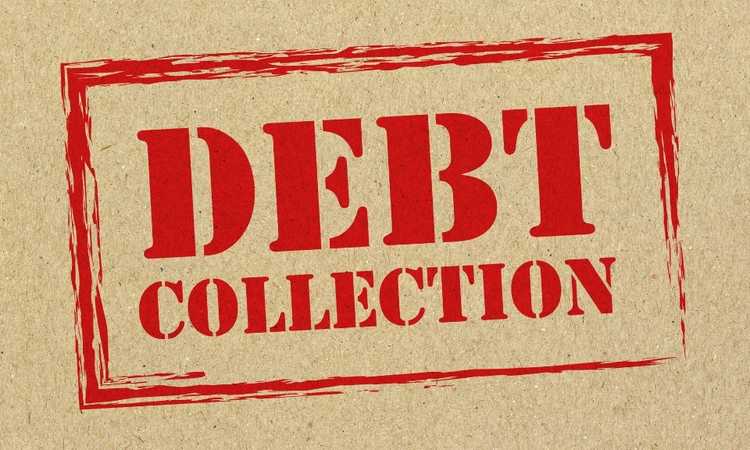Almost everyone will experience some type of debt in their lifetime. It could be a small amount that’s easily repaid, or it could be a larger sum that takes some time and effort to overcome. No matter what your situation is, it’s important to know about negotiating with debt collectors and creditors.
By using these strategies, you can potentially reduce the amount of money you owe or get the debt collector off your back altogether. Keep reading for more tips on how to successfully negotiate with debt collectors and creditors.
1. What to do if you’re contacted by a creditor or debt collector
If you’re contacted by a creditor or debt collector, there are a few things you should do in order to protect your rights.
First, try to obtain as much information about the debt as possible. This includes the amount owed, the creditors name and address, and the date the debt was incurred. Once you have this information, you can send a written dispute letter to the creditor or debt collector. This letter should state why you believe the debt is inaccurate or unfair, and request that they provide proof of the debt.
If you do not receive a response within 30 days, the debt should be considered resolved. However, if you do receive a response, you can negotiate with the creditor or debt collector to try and reach a settlement agreement. If an agreement can not be reached, you may need to seek legal assistance.
Read this: Credit score vs. credit report: what’s the difference?

2. Negotiating with debt collectors and creditors
When you find yourself in debt, it can be difficult to know how to negotiate with creditors and debt collectors. If you are feeling overwhelmed, it is important to remember that you have options. First, you can try to negotiate a lower interest rate or monthly payment.
You can also ask for a grace period or an extended repayment plan. If the creditor is unwilling to work with you, you can consider consolidating your debts or filing for bankruptcy. Ultimately, the best strategy will depend on your individual circumstances.
However, by taking the time to understand your options, you will be in a better position to negotiate from a position of strength. With careful planning and a bit of persistence, you can find a way to get out of debt and move on with your life.

3. What to do if you can’t afford to pay your debts
If you find yourself in a situation where you can’t afford to pay your debts, there are a few things you can do. First, it’s important to contact your creditors as soon as possible and explain the situation.
Many times, they will be willing to work with you to come up with a repayment plan that is affordable for both parties. If this isn’t an option, you may be able to negotiate a lower interest rate or even a reduction in the total amount owed. In some cases, creditors may be willing to waive late fees or penalties if you’re able to make a lump sum payment.
If you’re still unable to afford your debts, you may need to consider filing for bankruptcy. This should be considered a last resort, as it will have a major impact on your credit score and financial future. However, if it’s the only way out of debt, it can give you a fresh start financially.
4. What to do if you’ve been sued by a creditor or debt collector
Being sued by a creditor or debt collector can be a daunting experience, but it is important to remember that you have rights and there are steps you can take to protect yourself. The first thing you should do is seek legal advice from an attorney who specializes in debt collection defense. Once you have a clear understanding of your rights and the legal process, you can start to build your defense.
If the debt is valid, you can request that the creditor provide proof that you owe the debt. If the debt is time-barred, you can argue that the statute of limitations has expired and the creditor is not allowed to sue you. There are many other potential defenses available, so it is important to work with an experienced attorney to develop the best strategy for your case.
With a strong defense, you can protect your rights and give yourself the best chance of success in court.

5. How to file for bankruptcy
Filing for bankruptcy can be a difficult and emotional decision, but it may also be the best way to manage your debts and start fresh. If you’re considering bankruptcy, it’s important to understand the different types of bankruptcy and how they work. There are two main types of personal bankruptcy: Chapter 7 and Chapter 13.
Chapter 7 bankruptcy is often referred to as “liquidation” bankruptcy because it requires the sale of your non-exempt assets to pay off creditors. In most cases, your home and car are exempt from the sale, but you may have to give up other property, such as jewelry or collectibles. Once your assets are sold and the proceeds are distributed to your creditors, your remaining debts are discharged, and you are no longer liable for them.
Chapter 13 bankruptcy is also known as “reorganization” bankruptcy. Under this type of bankruptcy, you create a repayment plan to pay back some or all of your debts over a three- to five-year period. After you have made all of the required payments, any remaining balances on your qualifying debts are discharged.
If you’re considering bankruptcy, it’s important to speak with an experienced bankruptcy attorney to discuss your options and decide which type of bankruptcy is right for you.
Read This: How does medical debt affect your FICO score?
6. Alternatives to filing for bankruptcy
There are a number of alternatives to filing for bankruptcy, and the best option for you will depend on your individual circumstances. If you have a relatively small amount of debt, you may be able to negotiate with your creditors to create a payment plan that fits your budget.
If you’re facing a temporary financial setback, such as a job loss or medical bills, you may be able to get by with help from family and friends. You can also consider selling some of your assets, such as your car or home, to raise the cash you need to pay off your debts. However, if you’re facing a large amount of debt that you cannot realistically repay, bankruptcy may be your best option. By filing for bankruptcy, you can get rid of most of your debt and start fresh with a clean slate.
When it comes to negotiating with creditors and debt collectors, remember that you have more power than you may think. Take the time to research your rights, understand your options, and stay calm throughout the process. With a little bit of knowledge and effort, you can significantly reduce the amount of money you owe – giving yourself some much-needed breathing room.

Erika Finn, founder of Credit Help, is an attorney who graduated from law school (JD) at University of California, Berkeley and is a member of the California Bar Association. She was a member and editor of the California Law Review and won the Prosser Prize for Legal Accounting. She holds a Master’s Degree (MFA) from the University of Southern California (USC) and a Bachelor’s degree (BA) from Indiana University- Bloomington with highest distinction.
Credit Help believes that everyone should have access to helpful, free information about how to raise their credit rating.
Articles on Credit Help are not legal advice or financial advice.